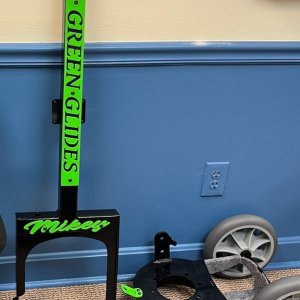Zee
Supportive Member
"Star quartz 2" the name of the product.
I went to look at a job the other day. It is a church we have done a lot of work for.
They recently did some remodeling and had tile installed into a fellowship hall kinda room. That was done professionally- no problems.
However, the lobby area is installed professionally and the grouting was done by church volunteers.. :roll:
I assume they didn't wash the grout material off the tiles good enough because it left the tiles hazy looking. Some areas you can actually feel the grout smear on the tile and looks grayish.
The question is: how do I resolve this issue, knowing that even muriatic acid didn't dissolve it?
How do I clean it?
I look at this board from time to time but no help as far as what cleans up the cured material. http://www.contractortalk.com/f73/starq ... 20/index3/
Any ideas?
I went to look at a job the other day. It is a church we have done a lot of work for.
They recently did some remodeling and had tile installed into a fellowship hall kinda room. That was done professionally- no problems.
However, the lobby area is installed professionally and the grouting was done by church volunteers.. :roll:
I assume they didn't wash the grout material off the tiles good enough because it left the tiles hazy looking. Some areas you can actually feel the grout smear on the tile and looks grayish.
The question is: how do I resolve this issue, knowing that even muriatic acid didn't dissolve it?
How do I clean it?
I look at this board from time to time but no help as far as what cleans up the cured material. http://www.contractortalk.com/f73/starq ... 20/index3/
Any ideas?

